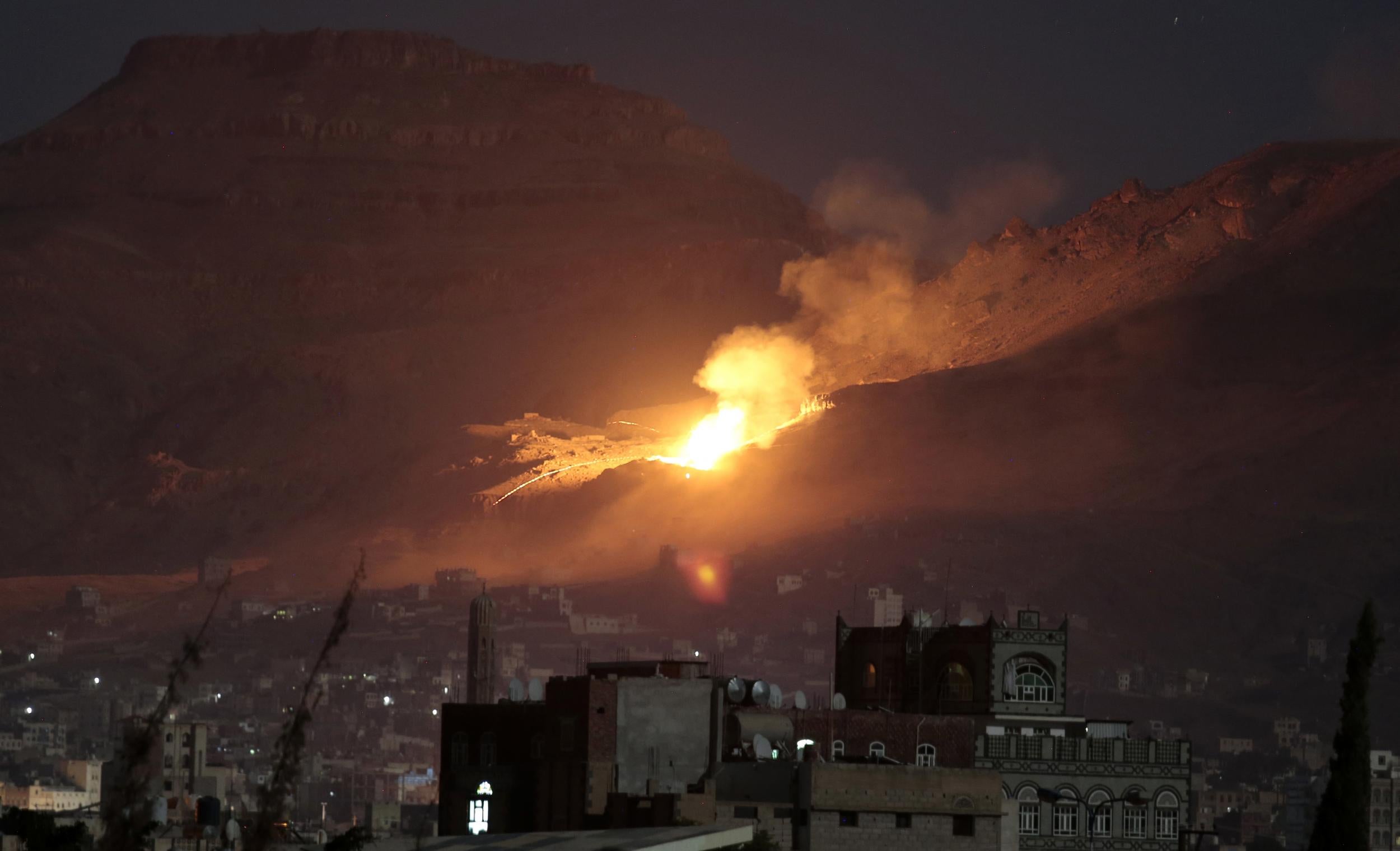Saudi Arabia appoints Bahraini judge involved in Arab Spring crackdown to investigate alleged war crimes in Yemen
Military lawyer Mansour Al-Mansour presided over the prosecutions of hundreds of peaceful protesters and has been criticised by international rights groups

Your support helps us to tell the story
From reproductive rights to climate change to Big Tech, The Independent is on the ground when the story is developing. Whether it's investigating the financials of Elon Musk's pro-Trump PAC or producing our latest documentary, 'The A Word', which shines a light on the American women fighting for reproductive rights, we know how important it is to parse out the facts from the messaging.
At such a critical moment in US history, we need reporters on the ground. Your donation allows us to keep sending journalists to speak to both sides of the story.
The Independent is trusted by Americans across the entire political spectrum. And unlike many other quality news outlets, we choose not to lock Americans out of our reporting and analysis with paywalls. We believe quality journalism should be available to everyone, paid for by those who can afford it.
Your support makes all the difference.Saudi Arabia has appointed a Bahraini national accused of overseeing torture and unfairly sentencing Arab Spring protesters to lengthy jail terms to investigate human rights violations caused by coalition bombing in Yemen.
Colonel Mansour Al-Mansour, a military lawyer, has been appointed as a legal adviser to the Saudi-led Joint Incident Assessments Team (JIAT) into air strikes that have killed thousands of civilians, including the bombing of a funeral hall last month that killed 140 people, MEMO reports.
The colonel gained notoriety in dealing with protesters in the wake of the Arab Spring in Bahrain in 2011, running a tribunal which prosecuted hundreds of non-violent pro-democracy protesters, academics, writers and journalists, often handing down life imprisonment sentences.
Dozens of those he sentenced allege torture and sexual assault while they were detained, which they say Colonel Al-Mansour ignored.
International observers and rights monitors were often barred from Colonel al-Mansour’s courtroom, leading to criticism from the UN and human rights groups.
Since the height of dissent against the rule of the Gulf state’s monarchy, Mr Mansour has gone on to train in humanitarian law, MEMO says.
He advised Bahrain not to adopt the UN Convention on Certain Conventional Weapons, which includes bans on weapons such as cluster munitions because of the “indiscriminate” harm they can cause. Saudi Arabia and its nine Middle Eastern partners, including Bahrain, are accused of using such bombs in Yemen.
All six incidents investigated by JIAT so far - including the August bombing of a Medecins Sans Frontieres field hospital - have cleared the coalition of wrongdoing.
The Kingdom began bombing Houthi rebel-held areas of Yemen at the request of the exiled government in March 2015.
Human Rights Watch and several other international bodies have called for an independent, rather than Saudi-run investigation to the alleged targeting of civilian infrastructure, and for Western nations to stop selling arms to Saudi Arabia and other Gulf nations which they say are destined for use in Yemen’s 18-month-old civil war.
The UN's special envoy to Yemen Ismail Ould Cheik Ahmed vowed to get the warring parties back to the negotiation table on Monday, despite both sides' rejection of his roadmap for peace in the conflict which has killed almost 10,000 people and left 3million displaced.
Subscribe to Independent Premium to bookmark this article
Want to bookmark your favourite articles and stories to read or reference later? Start your Independent Premium subscription today.
Join our commenting forum
Join thought-provoking conversations, follow other Independent readers and see their replies
Comments